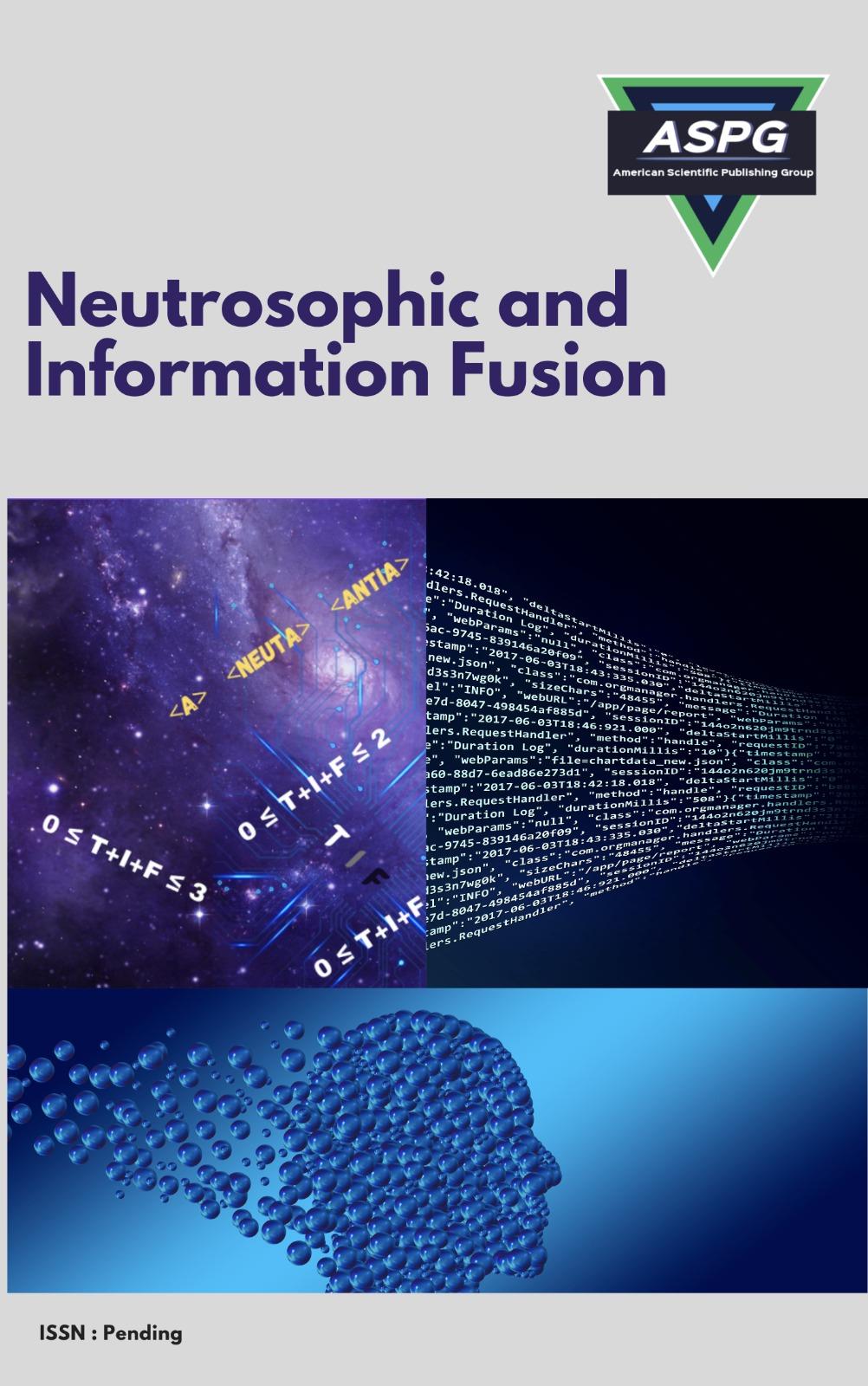

The objective of this paper is to study some of the elementary algebraic properties of 3-cyclic refined neutrosophic matrices with real entries, where we study the algebraic structure of the multiplication operation and its properties such as associativity, commutativity, and the existence of algebraic multiplication inverse. Also, we illustrate many examples that explain the validity of our work.
Read MoreDoi: https://doi.org/10.54216/NIF.030101
Vol. 3 Issue. 1 PP. 1-06, (2024)
The objective of this paper is to study some of the elementary algebraic properties of 4-cyclic refined neutrosophic matrices with real entries, where we study the algebraic structure of the multiplication operation and its properties such as associativity, commutativity, and the existence of algebraic multiplication inverse. Also, we illustrate many examples that explain the validity of our work.
Read MoreDoi: https://doi.org/10.54216/NIF.030102
Vol. 3 Issue. 1 PP. 07-12, (2024)
The traditional methods of discovering objects no longer meet the requirements of the times as a result of their reliance on non-dynamic methods and as a result of their slow performance in light of the world's dependence on a huge amount of multimedia and social media. With the rapid development of deep learning providing more powerful tools capable of manipulating high-level and complex semantic features of objects. Several techniques have been developed to detect objects using deep learning algorithms. This research presents a comparative analysis of the most famous deep learning techniques for object detection, explaining their mechanisms, use cases and an experimental evaluation of their performance.
Read MoreDoi: https://doi.org/10.54216/NIF.030103
Vol. 3 Issue. 1 PP. 13-26, (2024)
In this paper, we study the problem of estimating variance components in the two-way classification with interaction in the random effect linear model by non-linear maximization. We assume the model according to the assumptions and give the theory of derivation of the estimators of these components, then apply these estimators on real data and obtain the estimates. We estimate these components by two other methods: the solution of the expected equation of mean square in the analysis of the variance table, and the minimum variance quadratic unbiased estimator.
Read MoreDoi: https://doi.org/10.54216/NIF.030104
Vol. 3 Issue. 1 PP. 27-33, (2024)
This work is concerned with the problem of estimating parameters of spatial quadratic models by Bayesian technique (SQDM). This technique involves the prior information of the first and second moment of the parameters, where its estimation model is called the Bayesian quadratic unbiased estimator. The results of the estimation are taken in compared with the estimates of minimum norm quadratic unbiased estimators.
Read MoreDoi: https://doi.org/10.54216/NIF.030105
Vol. 3 Issue. 1 PP. 34-41, (2024)